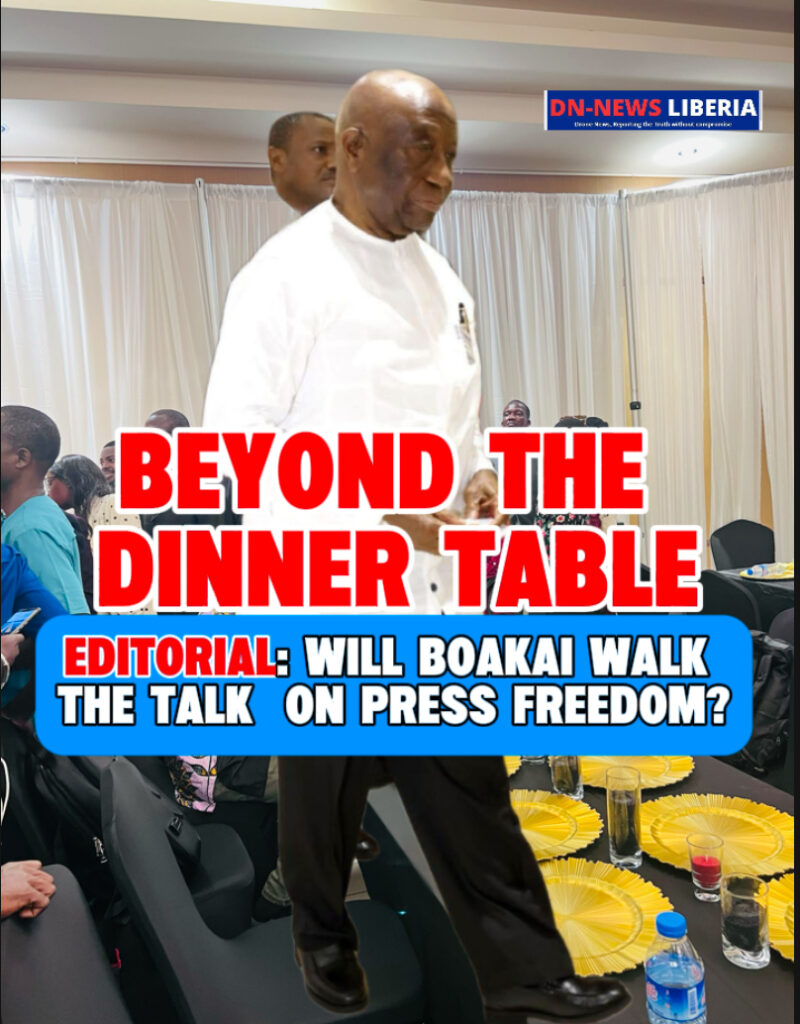President Joseph Nyuma Boakai’s appearance at the Annual Presidential Dinner with the Media has drawn commendation across the board—and rightly so. In a country where the press has often walked a tightrope between duty and danger, the President’s message of openness, tolerance, and partnership signals a potentially transformative shift in the state-media relationship.
Speaking directly to journalists, Boakai stated: “I don’t see criticism as a threat to my administration, but a platform that government can learn from.” That single line, spoken at a high-profile event, carries the weight of leadership maturity and democratic intent. It echoes the sentiments of leaders who understand that accountability is not opposition—and that a vibrant, questioning press is essential to building a functional, responsive government.
Further amplifying that message, President Boakai boldly declared: “Liberia will have no political prisoner and press suppression under my administration.” He went on to reassure the fourth estate of his administration’s unwavering commitment to their role: “My administration will continue to think the media, build the media, and love the media.”
These are not just comforting words—they are pledges that must be honored. For too long, Liberian journalists have endured harassment, arbitrary arrests, shutdowns, and fear-driven silence. And while this engagement sets a hopeful tone, it’s crucial that the promises made are not only remembered but followed through with concrete action.
The President was backed by his Information Minister, Jerolinmek M. Piah who declared: “No media will be censored, no media house will be illegally shutdown, and no journalist will be unlawfully detained.”That level of commitment, especially coming from the highest levels of government, is unprecedented in Liberia’s recent history.
But even as we welcome this progressive posture, we must ask: “Will Boakai Walk the Talk on Press Freedom”?
Is this a sincere beginning of a new media-government compact, or is it a strategic move in response to increasing political pressure, unmet expectations, and growing discontent?
For this promise to mean something, the Boakai administration must begin institutional reforms—strengthening access to public information, ensuring legal protections for journalists, and dismantling any remaining tools of media control. More than a one-time dinner, there should be regular forums for dialogue and collaboration.
The media, too, must play its part—staying independent, ethical, and fearless in its watchdog role. Democracy thrives when the press is both respected and responsible.
In the end, President Boakai’s message to the media may well be one of the defining moments of his early presidency. But history will not judge it by the speech—it will judge it by the legacy.
Let this not just be a soundbite for applause—but a signal of true change.

